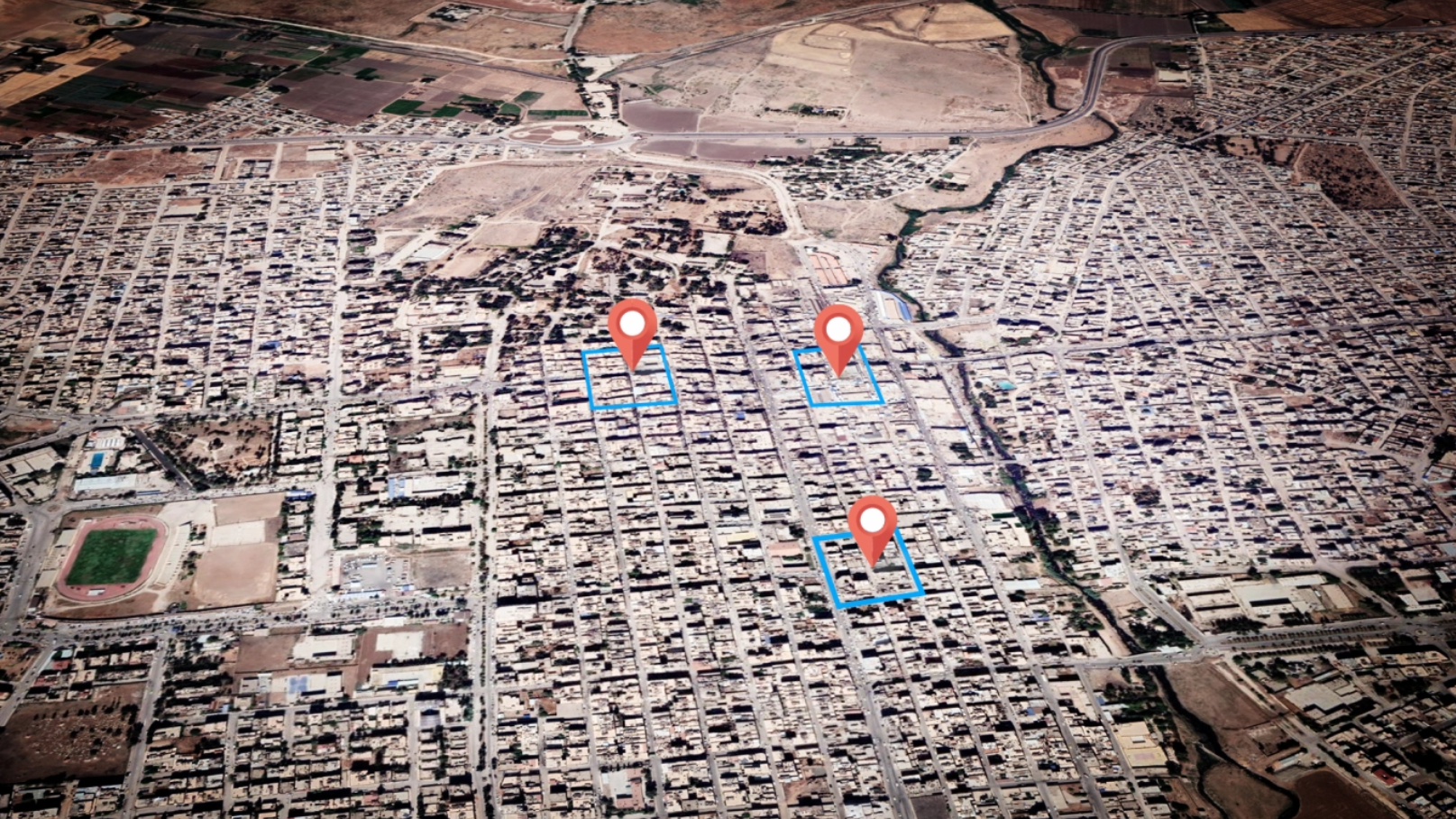
Syrians abroad lose their homes to real estate mafia in Qamishli
Hamza Hamki
Jamil Hassan, a Syrian who has lived in Spain for 52 years, received news in mid-April 2017 that an influential merchant known locally as Abu Dalu had seized his shop in the centre of the city of Qamishli in Al-Hasakah Governorate in North Eastern Syria.
The phenomenon of forgery of real estate ownership deeds has spread in various Syrian regions. Jamil Hassan was not aware of this trend, which prompted the authorities in Syria to change the rules regarding the granting of power of attorney to make forgery harder. But these changes are not implemented in North Eastern Syria.
Over the course of ten months of working on this investigation, we obtained data indicating that between 2015 and 2022 dozens of sales contracts were forged and properties worth millions of dollars were seized in Qamishli. The Council of Christian Churches in the Jazira and the Euphrates estimated in an official document that 70 properties belonging to Syrian Christians living abroad were seized through forgery.
We have examined about 100 judicial documents in cases of forgery and illegal seizure of properties in the city. After matching documents and questioning witnesses, stakeholders, and lawyers, we were able to track three major cases. In two of them, the name of the merchant Abu Dalu appears. He owns hundreds of properties in Qamishli, including dozens whose owners say he seized them in crooked ways.
In all the cases that we tracked, the name of Abu Dalu’s lawyer M. S. appears. Our investigation revealed that these individuals control many properties left behind by Syrians who fled the war, taking advantage of the dual judicial system that has been in force in the region since 2014.
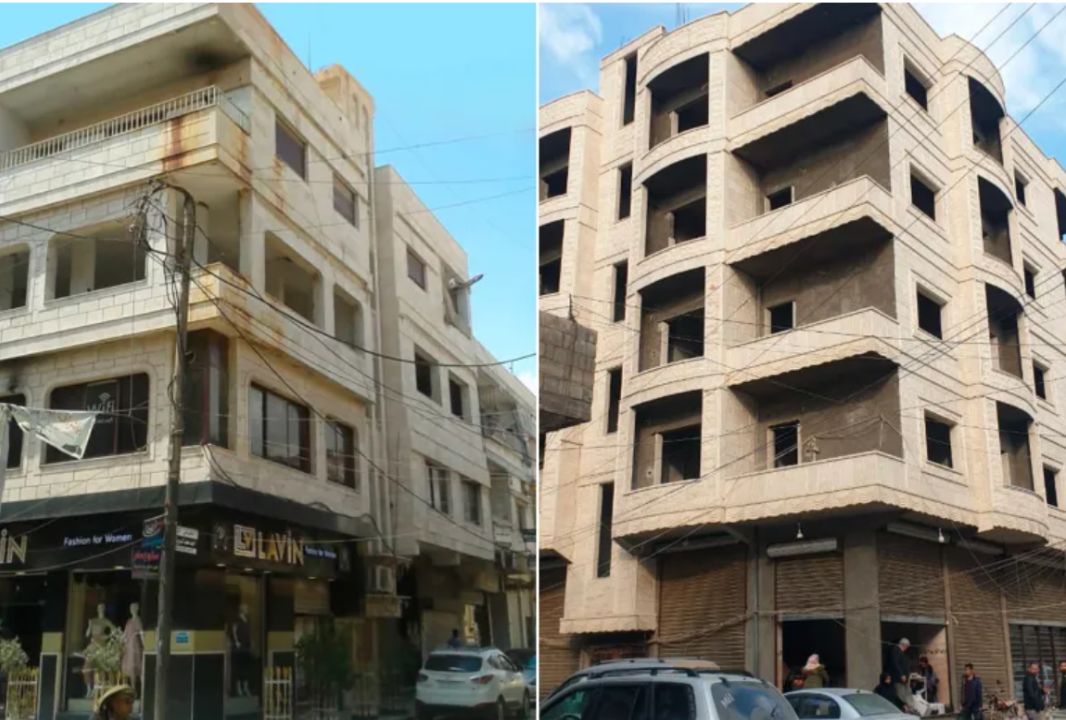
About 100 properties belonging to Syrians abroad were seized in Qamishli by forging property contracts (Aljazeera)
About 100 properties belonging to Syrians abroad were seized in Qamishli by forging property contracts (Aljazeera)
Judicial labyrinth
It was shocking to Jamil Hassan that his brother kept silent about the sale of his shop with a forged contract on the fourth of December 2011. When he became certain that the shop had been seized, he travelled to the city to retrieve it. According to the real estate registry, the shop is 22 square meters and is located in the Raba'a Al-Qamishli neighbourhood.
According to Hassan, the documents indicate that Abu Dalu paid the brother $200,000 for his silence. The property is worth about $300,000, as indicated by the testimonies of real estate agencies in the area.
It was not possible to communicate with the brother to respond to the allegations against him because he has been in prison in a European country for about five years. Hassan resorted to the judiciary after failing to reach an amicable agreement with Abu Dalu. He submitted a request to challenge the validity of his signature on the contract and demanded that his signature be compared to the one on the sale document to prove the forgery.
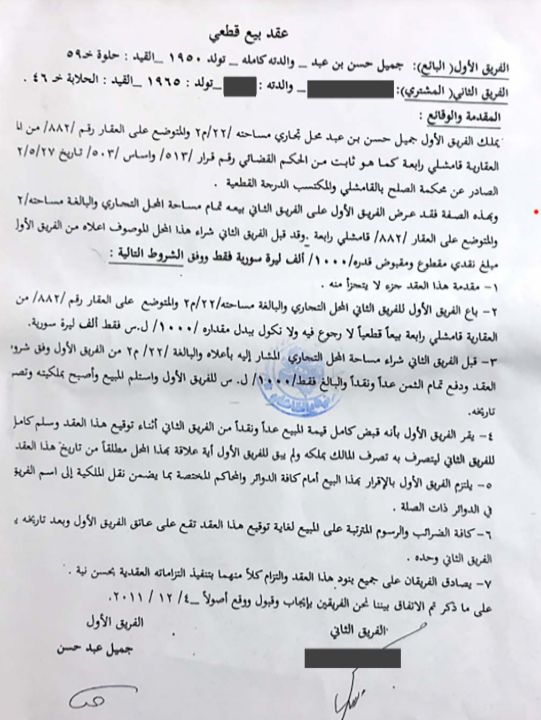
A copy of the forged contract containing the signature of Jamil Hassan (Aljazeera)
A copy of the forged contract containing the signature of Jamil Hassan (Aljazeera)
After a long search, we obtained a copy of the allegedly forged sale contract. We also obtained a telegram issued by the Immigration and Passports Department in Damascus bearing the number 1394918 / Q-M.
We tracked the dates of Jamil Hassan's entry into and departure from the country and compared them with the date of the conclusion of the contract submitted to the court. We discovered that Hassan entered Syria on December 28, 2011, 24 days after the date documented in the sale contract.
According to the legal protocol adopted in Syria, notifications of claims must be sent via post to the addresses of the parties concerned, which did not happen in the case of Jamil Hassan.
The court forwarded the notices to his brother's address instead of his address in the village of Hilwet al-Sheikh or his lawyer's office so that Hassan and his lawyer could not obtain the hearing notice.
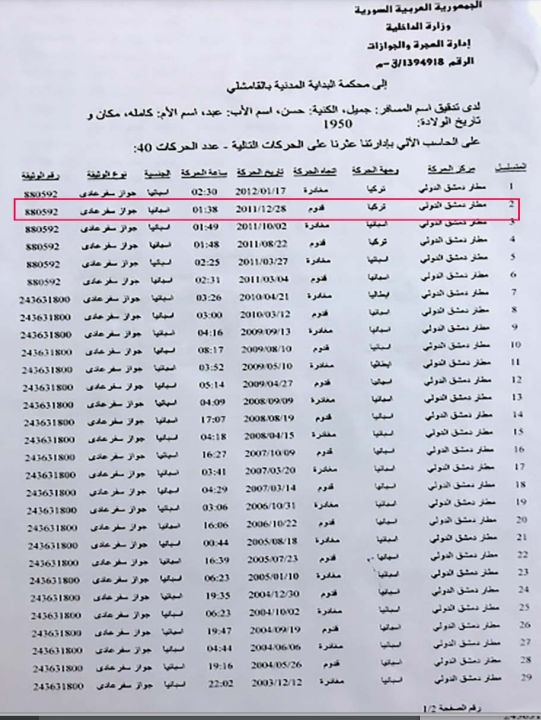
Telegram of the Syrian Immigration and Passports Department (Aljazeera)
Telegram of the Syrian Immigration and Passports Department (Aljazeera)
We followed the course of the case and obtained the expert reports issued by the Court of First Instance. The issue of whether the contract was forged or not was not resolved. The court stated that the match between the two signatures was only formal.
On the ninth of December 2021, Jamil Hassan obtained a decision from the Criminal Court in Qamishli, confirming that the sale contract submitted by the buyer had been forged.
The Civil Court of First Instance made a decision on October 17, 2022 (Decision No. 1285) to invalidate the sale contract, establishing its forgery beyond reasonable doubt, but the litigants could appeal.
The dual judicial system in Al-Hasakah governorate facilitates such forgeries and hinders combating them. It is divided between the courts of the Syrian government and the social justice courts of the Autonomous Administration, which has had de facto control over the area since the summer of 2012. Government institutions have continued to maintain real estate records, but the Autonomous Administration has actual control over the region.
In practical terms, Jamil Hassan will not benefit from the favourable government court decisions, except in terms of official records because the property is located in an area controlled by the Autonomous Administration.
The Autonomous Administration courts do not recognise the judicial rulings issued by Syrian government courts, but it is necessary to deal with the Syrian government's procedures to preserve rights. Jamil Hassan filed a lawsuit with the Autonomous Administration courts, and I was able to obtain its case file as well.
Document No. 1191 issued by the Cassation Commission in Qamishli on March 17, 2019 shows that the shop must be handed over to the original owner, but the judicial police assigned to receive the shop found it occupied by a tenant who was given 25 days by the court to hand over the property.
Abu Dalo did not give up. He appealed the ruling based on a previous decision issued by the court in August 2018 regarding the mechanism for hiring lawyers.
The decision issued at the time stipulated that Autonomous Administration courts would not accept the transfer of power of attorney from one lawyer to another without documenting it at the Bar Association of the Syrian government or the Autonomous Administration courts. This decision was later modified in October 2018 allowing the court to accept such a power of attorney.
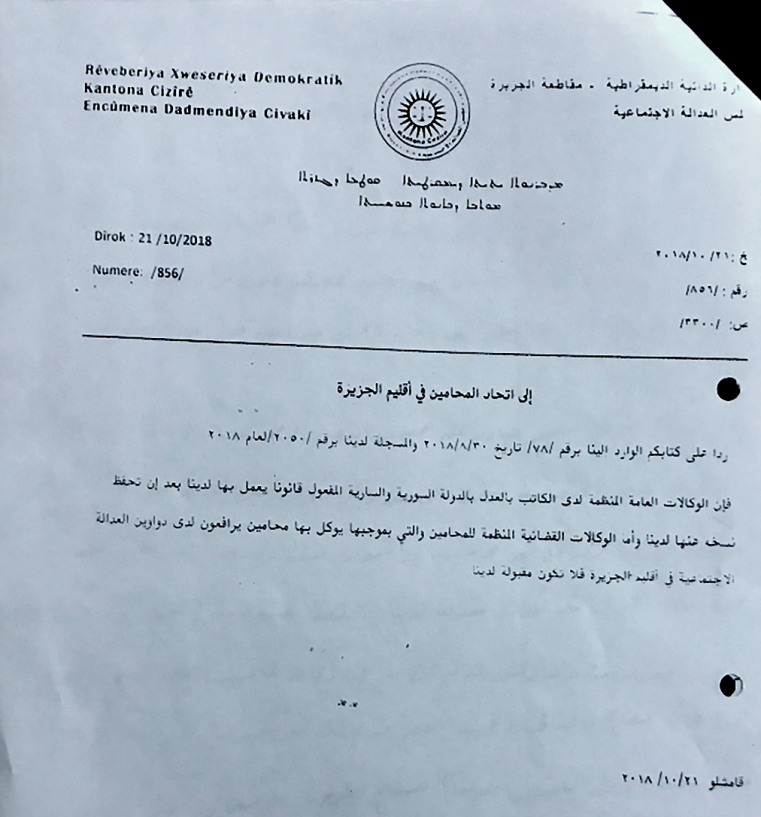
A copy of the decision regarding power of attorney rules issued by the Autonomous Administration courts (Aljazeera)
A copy of the decision regarding power of attorney rules issued by the Autonomous Administration courts (Aljazeera)
Jamil Hassan's lawyer appealed the court's last decision. He was shocked that the judiciary would hand over his place to Abu Dalu. As of the writing of this investigative report, the case has not been resolved.
Forgery game
While tracking the activities of Abu Dalu and his lawyer, we obtained another case file. The victim is the Afram family of Syriac origins. In 2016, Abu Dalu rented a store on the main street in Qamishli from the family of the two brothers, Jack and Joseph Isaac Afram, who have been living with their parents in Sweden for about 30 years.
The rented store is one of five stores, now called Al-Fadil, which occupy the first floor of a building located at the intersection of Al-Sayyid Al-Rais Street and Abi Tammam Street in the centre of the city of Qamishli. The building consists of three residential floors. The area of each floor is 240 square meters. The building also includes a basement that covers the entire area.
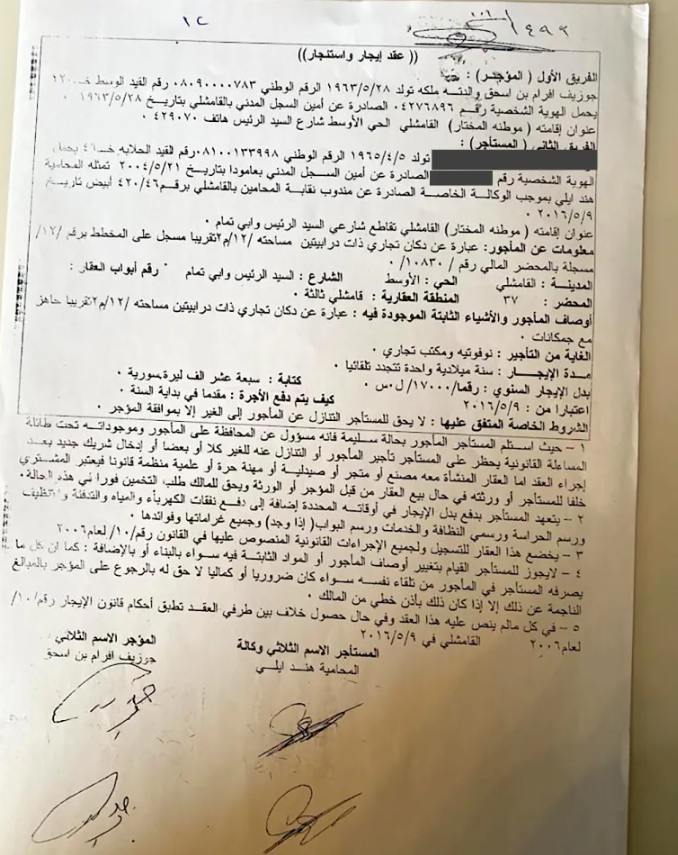
A copy of the rental contract (Aljazeera)
A copy of the rental contract (Aljazeera)
Abu Dalu rented four more shops belonging to the Afram family adjacent to the first shop that he had rented previously.
After three years, Jack and his father visited the city to discover that Abu Dalu had made structural changes to the shops, which is a clear violation of the contract concluded between the two parties under Syrian law. According to Article 581 of the Syrian Civil Code, the tenant may not make any modifications to the property without notifying its owner.
The Afram family claims that the tenant has threatened prospective buyers, and that Abu Dalu told them of his intention to seize the basement and later threatened to seize the entire building.
In an unexpected move, the ownership of the property and the shops in the real estate registry were changed to Abu Dalu’s name replacing the old lease contracts. The family says that he forged the sale document.
The case of Jamil Hassan mentioned in the investigation was a lesson from which the parties learned. Abu Dalu was keen to prove the presence of the seller inside the country at the time of the signing the sale contract.
Afram family says that Abu Dalu presented two contracts, one bearing a signature claiming to be Jack's signature on April 6, 2022 and the other bearing a signature claiming to be Joseph's signature on April 20, 2021. He took advantage of Jack's presence in the city to present a contract in his name as a seller as well as another contract in Joseph's name at an earlier date when he was on a visit to Syria.
The Afram family claims that the tenant obtained a copy of a previous power of attorney for Jack and his brother Joseph from the Bar Association bearing their real signatures. The tenant then learned how to draw the two signatures and placed them in the sale contracts.
The brothers then filed two separate lawsuits against Abu Dalu accusing him of falsifying the sale contracts. The case is still pending in the criminal court of the Syrian government.
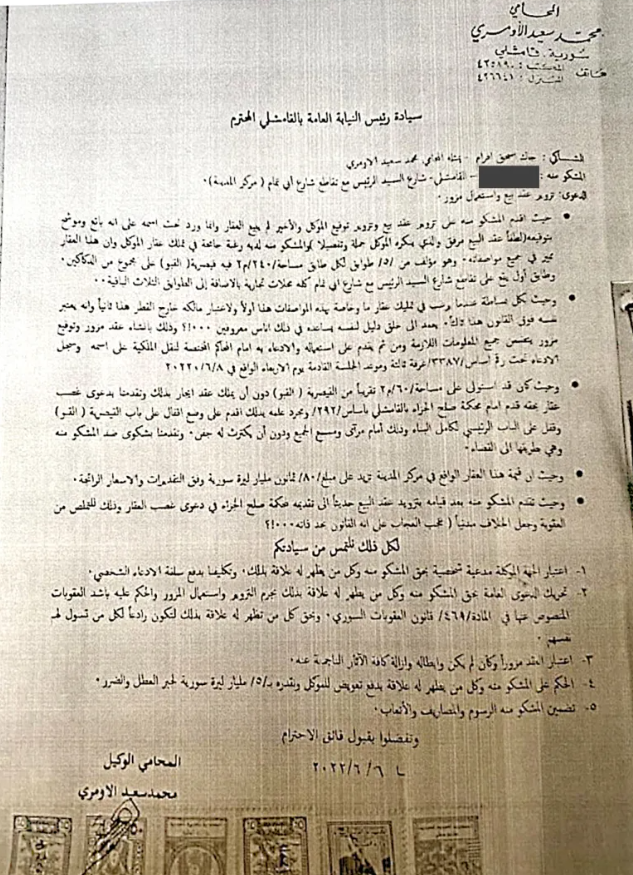
A complaint lodged by Jack Afram to the Qamishli Prosecution Office (Aljazeera)
A complaint lodged by Jack Afram to the Qamishli Prosecution Office (Aljazeera)
The Autonomous Administration courts also refused to consider the case because it was not resolved in government courts, based on Circular No. 11 in force in these courts.
The Afram family is one of the Syrian-Syriac families residing in Qamishli. The brothers Jack and Joseph left Syria for Scandinavia in the eighties of the last century due to the region’s neglect by the Syrian government. The rest of the family joined them following the military conflict that erupted in 2011.
In 2020, the Autonomous Administration issued a law to form the Absentee Property Committee, a special committee for Christian properties in the region. In the course of the investigation, we tried to contact the Autonomous Administration to inquire about their role in following up on the case of the Afram family and others, but we received no response.
According to the law, whoever covers up or disposes or leases the property of an absentee person without their permission shall be punished with imprisonment for a period not exceeding one year or a fine of no less than 5 million Syrian pounds.
وفي مطلع يوليو/تموز 2022 أصدرت المنظمة الآشوريةIn early July 2022, the Assyrian Democratic Organization issued a statement condemning the seizure of absentee properties in North Eastern Syria.
The organisation, which falls under the umbrella of the Syrian Opposition Coalition, expressed its shock at the sale of much of the properties of Syriac-Assyrian citizens in the Jazira region in general.
According to the statement, most of these properties are located in important areas in the centres of the cities of Qamishli, Hasakah, Derik, and Tal Tamr. They are seized through the falsification of the data and signatures of their original owners with the support of some influential people in the regime, judicial institutions, and officials in the de facto Autonomous Administration.
We obtained a document from the Council of Christian Churches in the Jazira and the Euphrates region related to the case of the brothers Jack and Joseph Afram. The document states that more than 70 properties belonging to expatriate Christians were sold through forgery.
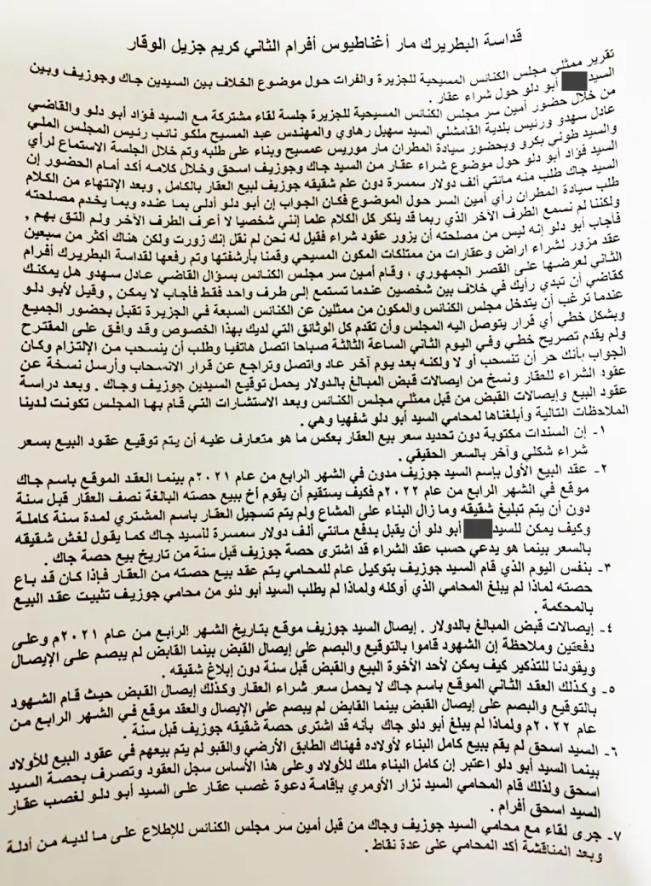
Statement of the Council of Christian Churches (Aljazeera)
Statement of the Council of Christian Churches (Aljazeera)
Lawsuit against a deceased person
The third case that I investigated relates to the house of Hagop Aslanian, which was sold without the knowledge or consent of its owner. M.S. the lawyer hired by Abu Dalu in the previous cases worked with a new person whose abbreviation is A.H.
The story began to unfold on November 11, 2012 when the Magistrate Court of the Syrian government issued a decision granting A. H. ownership of a property belonging to the Aslanian family. The property is located in the Rabaa Al-Qamishli area at the intersection of the Tigris and Euphrates Streets, next to Al-Salam Hospital.
The decision was issued by the court even though the real property owner, Hagop Aslanian, did not attend court proceedings because, according to the case papers, he had died in Aleppo in 1999.
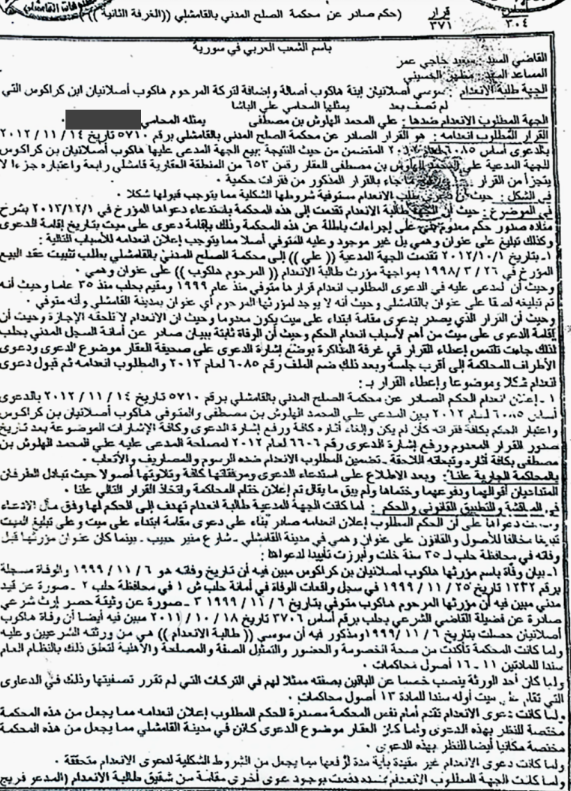
Judgment issued by the Magistrate Court in Qamishli (Aljazeera)
Judgment issued by the Magistrate Court in Qamishli (Aljazeera)
The daughter, Susi, who lives in the United States, hastened to return to Qamishli. The property was returned to the heirs after the sale made by the deceased on March 25, 2014 was nullified, but the lawyer re-filed a new lawsuit against the heirs of Hagop Aslanian.
During the court proceedings, Susi allowed someone to stay in the house under a loan contract in order to preserve the house until the forgery is proven in court and the contract is nullified.
The same scenario used in Jamil Hassan's first case was utilised here. Court hearing notices were never sent to the heirs.
According to Susi, out of a feeling of guilt, the person responsible for the court notices personally apologised to her and admitted that he had sent the court notices to the wrong address.
The house contract, which A. H. presented, dates back to 1998, one year before the death of the father. The question the family asked during our interview was: “Why would the buyer wait for more than 20 years without trying to establish ownership of the property?”
After the court issued its decision in their favour, the Aslanian family sold the property to a new owner who now resides in the property.
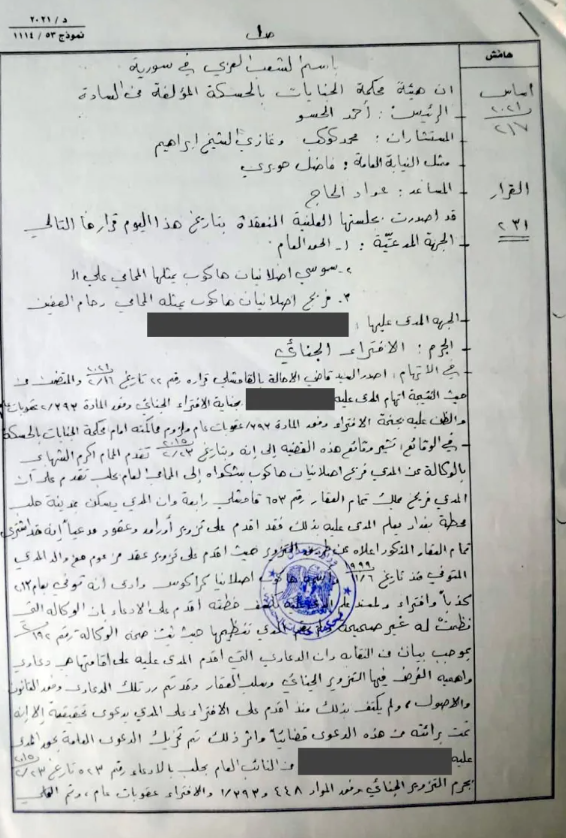
Al-Hasakah Criminal Court ruling in favour of the Aslanian family (Aljazeera)
Al-Hasakah Criminal Court ruling in favour of the Aslanian family (Aljazeera)
Although the daughter, who is the heir of the Aslanian family, obtained the nullification of the decision granting ownership of the property to A. H. from the Autonomous Administration Courts in 2014, the property remained registered in his name. A. H. later used another trick. He sold the property to four people in a sequential manner with the aim of making it difficult for the Aslanian family to challenge the sales.
Although the Autonomous Administration courts decided to grant the property to the Aslanian family, the case is still pending in Syrian government courts, which has control over official real estate records.
Last October, the buyer was arrested after a court issued a ruling against him in absentia. According to court documents, he was convicted of forgery in the case of the Aslanian family. According to some lawyers we spoke to, he was later released on a bail of three million Syrian pounds.
We contacted Abu Dalu and the lawyer regarding the allegations against them. We sent several messages to the lawyer to respond to the allegations against his client. We called him but he refused to comment and transferred the call to Abu Dalu, the defendant in the first two cases, who happened to be with him during the call.
We asked Abu Dalu about the cases. His response was that all his procedures were legal. When we confronted him with the denial of the owners and the ruling to invalidate the contracts, he evaded the answer, uttered obscene words, and threatened us. The lawyer, for his part, re-communicated with us, but instead of providing clear answers, he tried to persuade us to refrain from publishing the investigation, and at the end of the call he made veiled threats.
How is forgery done?
According to testimonies that we have obtained, approximately 100 sale contracts were forged for properties of a combined value of at least $25 million. We have limited our investigation to the three previous cases.
Most of these properties are located in the heart of the city of Qamishli, while some are located in important commercial areas such as the vicinity of the international airport in the city and the Karbit Palace of Mukhtar Kreikor close to the airport.
Land was also stolen next to a palace owned by an Armenian nun and converted into a restaurant. A plot of land belonging to Iskandar Ashu of the Syriac sect behind the train station was also stolen in addition to about twenty properties, including homes in the security square, the central neighbourhood and the market.
A judge, who spoke on the condition anonymity due to the influence of those involved in such cases and who works in a court affiliated with the Syrian government, told us that more than ten cases of real estate fraud are currently pending before the judiciary.
We wanted to know more about how the seizures take place. We met an employee in the Qamishli municipality of the Syrian government to explain to us how contracts are forged. We also met real estate agents to learn how the targeted properties are selected.
According to the real estate agents, the process begins first through real estate agencies that possess detailed information about the market. They select the property to be seized.
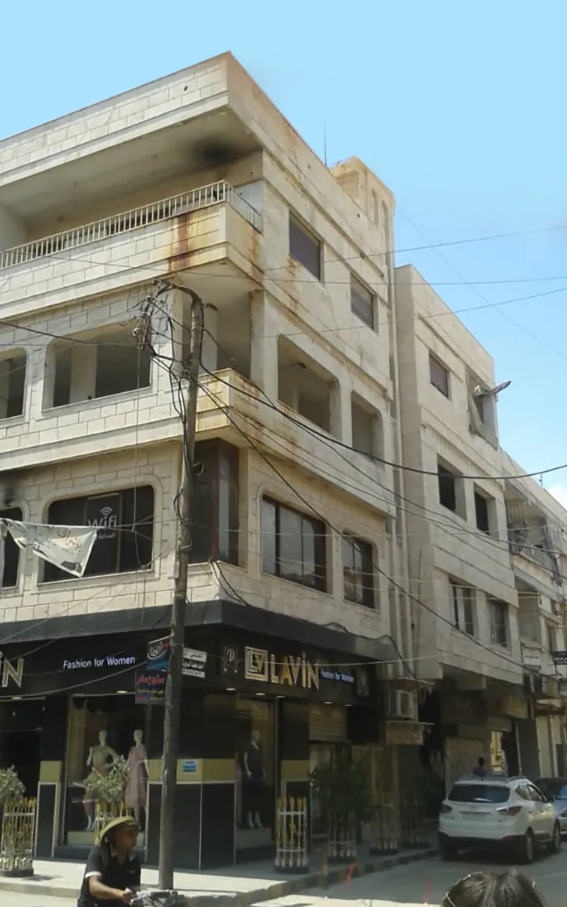
The building subject to the lawsuit in Qamishli (Aljazeera)
The building subject to the lawsuit in Qamishli (Aljazeera)
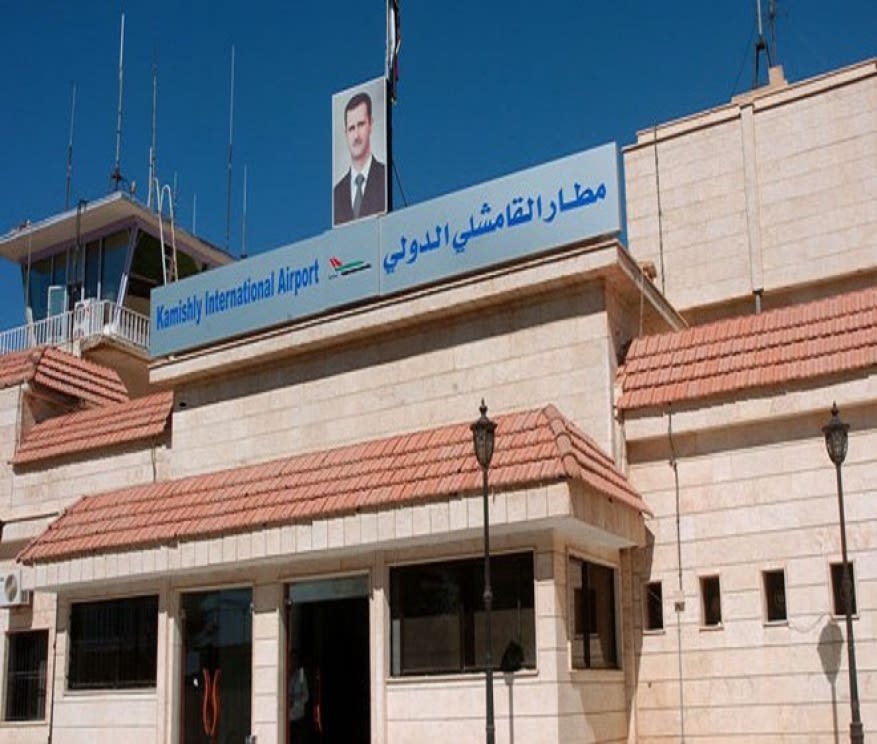
Several seized properties are located in the vicinity of the airport (Activists)
Several seized properties are located in the vicinity of the airport (Activists)
Once a property is selected, employees of the Syrian government’s municipality in Qamishli and employees of the Real Estate Registry Department in Al-Hasakah are asked to provide information about the property and its owner. Then sale contracts are forged with the help of someone who is proficient at imitating signatures.
According to the testimonies we collected, the imaginary buyer and witnesses get their financial share and the contracts are stamped with official seals provided by employees of Syrian government departments.
Once owners find out that their properties have been illegally seized, they normally resort to the court. The conflicting jurisdictions of various political authorities in Qamishli have made it hard for justice to be served by restoring the rights of owners in the many cases that we investigated. Owners have to deal with a maze in which the rights of civilians are lost. It is a fertile environment for networks of fraud and property theft, in a country that ranks 13th in the world on the corruption index.
Supervised by Loujein Haj Youssef - source : Aljazeera.net
